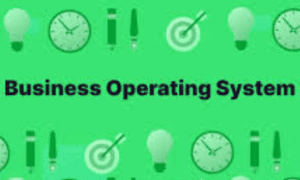As global energy markets confront unprecedented volatility, Odira Kingsley Okenwa’s innovative research redefines how the oil sector manages risk, sustainability, and strategic decision-making. His study, “Supply Chain Risk Management Strategies for Mitigating Geopolitical and Economic Risks,” published in the IRE Journals, provides a critical reference point for oil corporations, regulators, and policymakers seeking to protect energy supply lines from shocks. Okenwa’s framework integrates artificial intelligence, blockchain transparency, and predictive analytics to create a data-driven model that transforms how oil moves across borders and how nations safeguard their economic stability.
The study arrives at a moment when the oil supply chain faces complex disruptions. Price fluctuations driven by OPEC decisions, U.S.–China trade tensions, and sanctions on key producers have exposed structural weaknesses across global logistics. For oil-dependent economies, a single geopolitical event can ripple through refining, shipping, and distribution networks. Okenwa’s research argues that the traditional focus on efficiency and cost optimization is outdated. In an era of real-time market shifts, supply chains must become adaptive, intelligent, and collaborative.

Speaking at a Technical Session in Abuja, Okenwa stated, “Oil supply chains are living systems. They must sense disruption, learn from it, and evolve before it becomes a crisis. Data is no longer a tool, it is infrastructure.” His proposition reframes resilience as a measurable capability rather than a theoretical goal. He presents a system in which artificial intelligence anticipates disruptions, blockchain secures traceability, and predictive analytics enables informed decisions in logistics, procurement, and production.
The implications of Okenwa’s work reach far into global energy governance. In Europe, his model supports the European Union’s goals for energy diversification and resilience. By using predictive analytics to anticipate supply disruptions caused by political tensions or pipeline failures, European regulators can better manage import dependencies on Russia and the Middle East. The framework aligns with the EU’s REPowerEU strategy by helping member states forecast demand shifts, optimize storage capacity, and coordinate regional stockpiling strategies. It provides a technological foundation for linking sustainability goals with operational security, allowing Europe to move toward carbon transition without compromising energy access.
In the United Kingdom, Okenwa’s research offers new pathways for balancing post-Brexit trade independence with energy stability. As the UK redefines its trade policies, his model provides the analytical infrastructure to assess risk exposure in crude imports, refinery logistics, and maritime operations. The study’s blockchain component enhances transparency in North Sea production and offshore trading, helping regulators and operators detect fraud, track emissions, and ensure ethical sourcing. The adoption of these tools could improve efficiency at critical hubs such as the Port of Felixstowe and the Fawley Refinery, where delays and compliance issues have historically increased costs.
For the United States, Okenwa’s framework offers a complement to the federal drive for energy security and critical supply chain protection under Executive Order 14017. U.S. agencies and private operators face recurring challenges from cyber threats, extreme weather events, and fluctuating trade relations. His model introduces a data architecture that supports predictive risk modeling for refineries, pipelines, and export terminals. It aligns with Department of Energy initiatives to integrate artificial intelligence into energy logistics and with the Department of Homeland Security’s agenda for securing critical infrastructure. In an era of global competition and energy transition, the U.S. can leverage Okenwa’s insights to strengthen domestic refinery capacity, optimize strategic petroleum reserves, and reduce exposure to global market shocks.
Okenwa’s research also has profound implications for global collaboration. By advancing an open-source and modular approach, he makes resilience accessible to both large oil corporations and smaller regional operators. His model proffers solutions to clusters of small and medium enterprises in Africa, Asia, and Eastern Europe that lack the infrastructure of multinational oil firms but face equally volatile environments. The democratization of risk intelligence allows these firms to share data, predict disruptions, and coordinate resource allocation—creating a new culture of cooperative resilience.
Critics acknowledge that while the model’s digital integration is ambitious, it also introduces new cybersecurity challenges. Greater automation could expose sensitive infrastructure to hacking and data breaches. Yet, Okenwa addresses this concern by advocating for layered governance systems and cross-industry cybersecurity protocols. Analysts note that even with its risks, his approach has shifted the conversation from whether modernization is necessary to how it can be implemented safely and inclusively.
The long-term implications of Okenwa’s work are profound. The Organisation for Economic Co-operation and Development (OECD) projects that widespread adoption of giudelines such as the ones underscoring his research could reduce trade volatility by nearly 10 percent over two years. Governments are now examining how adaptive risk models can guide energy diversification, enhance export stability, and support carbon transition without economic disruption. For policymakers, the study provides a roadmap linking supply chain resilience with national competitiveness. For industry leaders, it offers a vision of intelligent systems capable of turning volatility into foresight and foresight into sustained operational strength.
Odira Kingsley Okenwa’s research transcends academic theory. It stands as a strategic blueprint for how nations and corporations can secure the global oil supply chain in an era of uncertainty. His work redefines resilience not as endurance, but as intelligence which is the ability to anticipate, adapt, and thrive amid disruption.


































